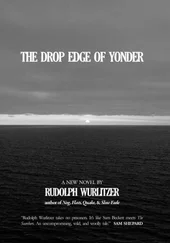W. MAUGHAM - The Razor's Edge
Здесь есть возможность читать онлайн «W. MAUGHAM - The Razor's Edge» весь текст электронной книги совершенно бесплатно (целиком полную версию без сокращений). В некоторых случаях можно слушать аудио, скачать через торрент в формате fb2 и присутствует краткое содержание. Жанр: Современная проза, на английском языке. Описание произведения, (предисловие) а так же отзывы посетителей доступны на портале библиотеки ЛибКат.
- Название:The Razor's Edge
- Автор:
- Жанр:
- Год:неизвестен
- ISBN:нет данных
- Рейтинг книги:3 / 5. Голосов: 1
-
Избранное:Добавить в избранное
- Отзывы:
-
Ваша оценка:
- 60
- 1
- 2
- 3
- 4
- 5
The Razor's Edge: краткое содержание, описание и аннотация
Предлагаем к чтению аннотацию, описание, краткое содержание или предисловие (зависит от того, что написал сам автор книги «The Razor's Edge»). Если вы не нашли необходимую информацию о книге — напишите в комментариях, мы постараемся отыскать её.
The Razor's Edge — читать онлайн бесплатно полную книгу (весь текст) целиком
Ниже представлен текст книги, разбитый по страницам. Система сохранения места последней прочитанной страницы, позволяет с удобством читать онлайн бесплатно книгу «The Razor's Edge», без необходимости каждый раз заново искать на чём Вы остановились. Поставьте закладку, и сможете в любой момент перейти на страницу, на которой закончили чтение.
Интервал:
Закладка:
I met Larry by chance. I had asked Isabel about him and she told me that since their return from La Baule they had seen little of him. She and Gray had by now made a number of friends for themselves, people of their own generation, and they were more often engaged than during the pleasant weeks when the four of us were so much together. One evening I went to the Theatre Francais to see Berenice. I had read it of course, but had never seen it played, and since it is seldom given I was unwilling to miss the opportunity. It is not one of Racine's best plays, for the subject is too tenuous to support five acts, but it is moving and contains passages that are justly famous. The story is founded on a brief passage in Tacitus: Titus, who loved Berenice, Queen of Palestine, with passion and who had even, as was supposed, promised her marriage, for reasons of state sent her away from Rome during the first days of his reign in despite of his desires and in despite of hers. For the Senate and the people of Rome were violently opposed to their Emperor's alliance with a foreign queen. The play is concerned with the struggle in his breast between love and duty, and when he falters, it is Berenice who in the end, assured that he loves her, confirms his purpose and separates herself from him for ever.
I suppose only a Frenchman can appreciate to the full the grace and grandeur of Racine and the music of his verse, but even a foreigner, once he has accustomed himself to the periwigged formality of the style, can hardly fail to be moved by his passionate tenderness and by the nobility of his sentiment. Racine knew as few have done how much drama is contained in the human voice. To me at all events the roll of those mellifluous Alexandrines is a sufficient substitute for action, and I find the long speeches, worked up with infinite skill to the expected climax, every bit as thrilling as any hair-raising adventure of the movies.
There was an interval after the third act and I went out to smoke a cigarette in the foyer over which presides Houdon's Voltaire with his toothless, sardonic grin. Someone touched me on the shoulder. I turned round, perhaps with a slight movement of annoyance, for I wanted to be left with the exaltation with which those sonorous lines had filled me, and saw Larry. As always, I was glad to see him. It was a year since I had set eyes on him, and I suggested that at the end of the play we should meet and have a glass of beer together. Larry said he was hungry, for he had had no dinner, and proposed that we should go to Montmartre. We found one another in due course and stepped out into the open. The Theatre Francais has a musty fug that is peculiar to it. It is impregnated with the body odour of those unnumbered generations of sour-faced, unwashed women called ouvreuses who show you to your seat and domineeringly await their tip. It was a relief to get into the fresh air, and since the night was fine we walked. The arc lamps in the Avenue de l'Opera glared so defiantly that the stars above, as though too proud to compete, shrouded their brightness in the dark of their infinite distance. As we walked we spoke of the performance we had just seen. Larry was disappointed. He would have liked it to be more natural, the lines spoken as people naturally speak and the gestures less theatrical. I thought his point of view mistaken. It was rhetoric, magnificent rhetoric, and I had a notion that it should be spoken rhetorically. I liked the regular thump of the rhymes; and the stylized gestures, handed down in a long tradition, seemed to me to suit the temper of that formal act. I could not but think that that was how Racine would have wished his play to be played. I had admired the way in which the actors had contrived to be human, passionate, and true within the limitations that confined them. Art is triumphant when it can use convention as an instrument of its own purpose.
We reached the Avenue de Clichy and went into the Brasserie Graf. It was not long past midnight and the room was crowded, but we found a table and ordered ourselves eggs and bacon. I told Larry I had seen Isabel.
'Gray will be glad to get back to America,' he said. 'He's a fish out of water here. He won't be happy till he's at work again. I dare saу he'll make a lot of money.'
'If he does it'll be due to you. You not only cured him in body, but in spirit as well. You restored his confidence in himself.'
'I did very little. I merely showed him how to cure himself.'
'How did you learn to do that little?'
'By accident. It was when I was in India. I'd been suffering from insomnia and happened to mention it to an old Yogi I knew and he said he'd soon settle that. He did just what you saw me do with Gray and that night I slept as I hadn't slept for months. And then, a year later it must have been, I was in the Himalayas with an Indian friend of mine and he sprained his ankle. It was impossible to get a doctor and he was in great pain. I thought I'd try to do what the old Yogi had done, and it worked. You can believe it or not, he was completely relieved of the pain.' Larry laughed. 'I can assure you, no one was more surprised than I. There's nothing to it really; it only means putting the idea into the sufferer's mind.'
'Easier said than done.'
'Would it surprise you if your arm raised itself from the table without any volition of yours?'
'Very much.'
'It will. My Indian friend told people what I'd done when we got back to civilization and he brought others to see me. I hated doing it, because I couldn't quite understand it, but they insisted. Somehow or other I did them good. I found I was able to relieve people not only of pain but of fear. It's strange how many people suffer from it. I don't mean fear of closed spaces and fear of heights, but fear of death and, what's worse, fear of life. Often they're people who seem in the best of health, prosperous, without any worry, and yet they're tortured by it. I've sometimes thought it was the most besetting humour of men, and I asked myself at one time if it was due to some deep animal instinct that man has inherited from that primeval something that first felt the thrill of life.'
I was listening to Larry with expectation, for it was not often that he spoke at any length, and I had an inkling that for once he felt communicative. Perhaps the play we had just seen had released some inhibition and the rhythm of its sonorous cadences, as music will, had overcome his instinctive reserve. Suddenly I realized that something was happening to my hand. I had not given another thought to Larry's half-laughing question. I was conscious that my hand no longer rested on the table, but was raised an inch above it without my willing it. I was taken aback. I looked at it and saw that it trembled slightly. I felt a queer tingling in the nerves of my arm, a little jerk, and my hand and forearm lifted of themselves, I to the best of my belief neither aiding nor resisting, until they were several inches from the table. Then I felt my whole arm being raised from the shoulder.
'This is very odd,' I said.
Larry laughed. I made the slightest effort of will and my hand fell back on to the table.
'It's nothing,' he said. 'Don't attach any importance to it.'
'Were you taught that by the Yogi you spoke to us about when you first came back from India?'
'Oh no, he had no patience with that kind of thing. I don't know whether he believed that he possessed the powers that some Yogis claim to have, but he would have thought it puerile to exercise them.'
Our eggs and bacon arrived and we ate them with good appetite. We drank our beer. Neither of us spoke. Larry was thinking of I knew not what and I was thinking of him.
We finished. I lit a cigarette and he lit a pipe.
'What made you go to India in the first place?' I asked abruptly.
Читать дальшеИнтервал:
Закладка:
Похожие книги на «The Razor's Edge»
Представляем Вашему вниманию похожие книги на «The Razor's Edge» списком для выбора. Мы отобрали схожую по названию и смыслу литературу в надежде предоставить читателям больше вариантов отыскать новые, интересные, ещё непрочитанные произведения.
Обсуждение, отзывы о книге «The Razor's Edge» и просто собственные мнения читателей. Оставьте ваши комментарии, напишите, что Вы думаете о произведении, его смысле или главных героях. Укажите что конкретно понравилось, а что нет, и почему Вы так считаете.









